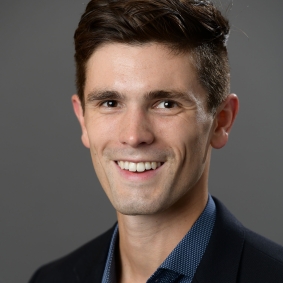Knauss legislative fellowships in Congress help build careers — and they're fun and educational. See our video and fact sheet for details.
Brendan Philip

Fellowship Institution:
The White House Executive Office of the President Council on Environmental QualityStart Year:
2022Brendan Philip is a Knauss Marine Policy Fellow with the Council on Environmental Quality (CEQ) in the White House Executive Office of the President. Prior to joining CEQ as a Knauss Fellow, Brendan was an ORISE Fellow in the Environmental Protection Agency’s Office of Wetlands, Oceans and Watersheds, where he worked on estuarine climate adaptation and vessel discharge regulations in the Ocean and Coastal Management Branch. Brendan is a graduate of George Washington University’s Trachtenberg School of Public Policy in Washington, D.C., where he earned a master’s in Environmental Resource Policy. As a graduate student at GW, Brendan interned with the American Geophysical Union’s Public Affairs team and with the U.S. House of Representative’s Committee on Science, Space and Technology, where he advanced national geoscience policy legislation. Brendan also studied Oceanography and Marine Geology at the University of Washington in Seattle, where he worked with remotely operated vehicles and deep-sea observatories to study subduction zone geochemistry.
Brendan grew up living on a sailboat in Seattle with his family and spent many summers sailing throughout the Salish Sea. He is passionate about environmental protection and spends as much time outside as possible, enjoying biking, running, swimming, skiing, backpacking and sailing.
Call for Symposium Presenters and Authors
The Chesapeake Rising: Innovative Law and Policy Solutions for Climate Adaptation in Coastal Communities symposium will explore key legal and policy considerations that affect climate adaptation strategies. It provides a unique opportunity for upper-level law students and early-career lawyers to present and publish their legal scholarship.
Program Announcements
-
-
Maryland Sea Grant has program development funds for start-up efforts, graduate student research, or strategic support for emerging areas of research. Apply here.
News and Blogs
Video Gallery
Sea Grant Film Explores a Diminishing Smithville
Smithville is a community on Maryland’s Eastern Shore, on the edge of the Blackwater National Wildlife Refuge. A century ago, Smithville had more than 100 residents. Today, it has four, in two homes: an elderly couple, and one elderly woman and her son, who cares for her.
Featured Fellow
Featured Research Project
Developing a habitat model for mysids, an important link in Chesapeake Bay food webs
Mysids are important mesozooplankton prey for many species of fish in Chesapeake Bay and are an important link in transferring energy from lower to upper trophic levels. Mysids also serve as biological vectors for benthic-pelagic coupling due to their diel vertical migration and omnivorous prey-switching behavior, which makes mysids important regulators of food web architecture. Despite their central role in coastal food webs, surprisingly little is known about mysid ecology and dynamics in Chesapeake Bay.
The Blue Crab: Callinectes Sapidus
An essential resource for researchers, students, and managers. Get your copy today!


©2025 Maryland Sea Grant. All rights reserved.
5825 University Research Court, Suite 1350 | College Park, MD 20740
Phone: (301) 405-7500 | Fax: (301) 314-5780 | Contact Us



